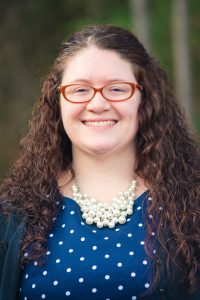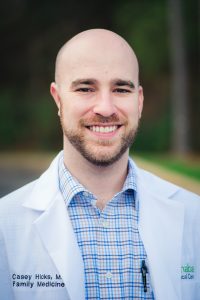How BCFMO Certification Benefits Physicians
 The American Board of Physician Specialties® (ABPS) offers qualified physicians in family medicine obstetrics an opportunity to demonstrate that they have the skills and knowledge to practice their specialty at the highest level. The ABPS is a nationally recognized, multi-specialty board-certifying body with stringent eligibility requirements, and to achieve certification through our Member Board, the Board of Certification in Family Medicine Obstetrics (BCFMO®), eligible physicians must pass some of the most rigorous exams in the industry. Hence, only talented and dedicated physicians become certified by the BCFMO.
The American Board of Physician Specialties® (ABPS) offers qualified physicians in family medicine obstetrics an opportunity to demonstrate that they have the skills and knowledge to practice their specialty at the highest level. The ABPS is a nationally recognized, multi-specialty board-certifying body with stringent eligibility requirements, and to achieve certification through our Member Board, the Board of Certification in Family Medicine Obstetrics (BCFMO®), eligible physicians must pass some of the most rigorous exams in the industry. Hence, only talented and dedicated physicians become certified by the BCFMO.
Increasingly, hospitals across the country are prioritizing hiring board-certified physicians as a way to differentiate themselves from the competition. Besides elevating the prestige of medical organizations, board-certified physicians, like our BCFMO Diplomates, inspire confidence in their patients, who often choose doctors based on their credentials. But how does BCFMO certification benefit physicians?
Let Lauren Linken, MD, a BCFMO Diplomate, tell you:
 “In 2015, fresh out of fellowship training, I accepted a position with a Federally Qualified Health Center to practice family medicine and obstetrics. The hospital had ob-gyn physicians only and, for almost 30 years, no family medicine doctor had performed a delivery there. When I applied for my privileges, I was asked via a questionnaire, ‘Are you board certified?’ I was, through the American Board of Family Medicine. The questionnaire also asked, ‘Are you board eligible?’ I was, too, as I had completed a fellowship in obstetrics and was eligible to take the board exam offered by BCFMO. Because I had completed a fellowship, had met all my ‘numbers,’ and was board eligible, I was granted privileges. I went on to successfully complete my BCFMO exam and, since then, I have kept my full privileges.
“In 2015, fresh out of fellowship training, I accepted a position with a Federally Qualified Health Center to practice family medicine and obstetrics. The hospital had ob-gyn physicians only and, for almost 30 years, no family medicine doctor had performed a delivery there. When I applied for my privileges, I was asked via a questionnaire, ‘Are you board certified?’ I was, through the American Board of Family Medicine. The questionnaire also asked, ‘Are you board eligible?’ I was, too, as I had completed a fellowship in obstetrics and was eligible to take the board exam offered by BCFMO. Because I had completed a fellowship, had met all my ‘numbers,’ and was board eligible, I was granted privileges. I went on to successfully complete my BCFMO exam and, since then, I have kept my full privileges.
“My partner, Casey Hicks, MD, was another story. He had completed a fellowship in tropical medicine, which included a significant amount of maternity care and cesarean sections – but in Africa, and it was not an obstetric fellowship per se. Although Dr. Hicks had the skill set to perform full-spectrum low- and high-risk obstetrics, including surgical deliveries, he was denied privileges. They did allow him to perform vaginal deliveries and assist in my surgeries, but he had to take further steps to get full privileges. He worked with me for a year doing an obstetric fellowship, and became board eligible. He passed his boards and had no problems applying for and accepting full privileges to practice obstetrics. Without the BCFMO, I don’t think this would have been a possibility for Dr. Hicks.”
The BCFMO Certification Process
To apply for BCFMO certification in family medicine obstetrics, candidates must meet the ABPS’s general requirements, which include graduating from a recognized U.S., Canadian, or international medical school (allopathic or osteopathic) and holding a valid, unrestricted medical license in the United States, its territories, or Canada.
The BCFMO offers two certification types: surgical and non-surgical. Both require completion of an accredited residency and board certification in family medicine.
Surgical Qualification Certification
There are two pathways for surgical certification—clinical practice and fellowship.
- Fellowship track – Candidates must complete a 12-month recognized fellowship or extended residency program within the past five years.
- Clinical practice track – Suitable for physicians with five years of surgical obstetrics experience.
For both tracks, a case log showing at least 60 vaginal and 70 cesarean deliveries, including 15 vaginal and 10 cesareans in the last two years, is required.
For a list of recognized family medicine obstetrics fellowships, click here.
Non-Surgical Certification
- Candidates must submit a case log showing at least 60 vaginal deliveries, including 15 within the last two years.
BCFMO Examinations
- Non-surgical candidates must pass a written examination.
- Surgical candidates must pass both written and oral examinations. These exams, designed by experts, ensure that certified physicians are proficient in all aspects of obstetrics and gynecology. For more details on the BCFMO exams, click here.
BCFMO certifications are valid for eight years, expiring on December 31st of the eighth year.
The ABPS encourages physicians interested in expanding their career opportunities, whether through gaining employment or hospital privileges, to pursue certification with the BCFMO. To learn about its eligibility requirements, or the benefits of BCFMO certification, contact the ABPS today.






